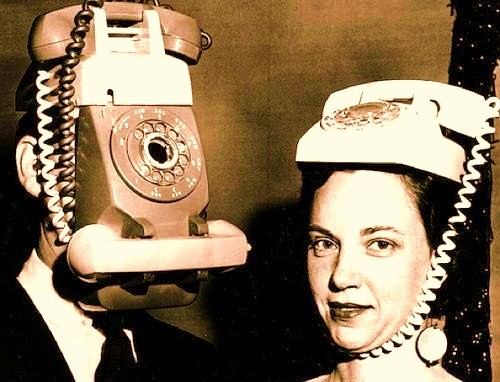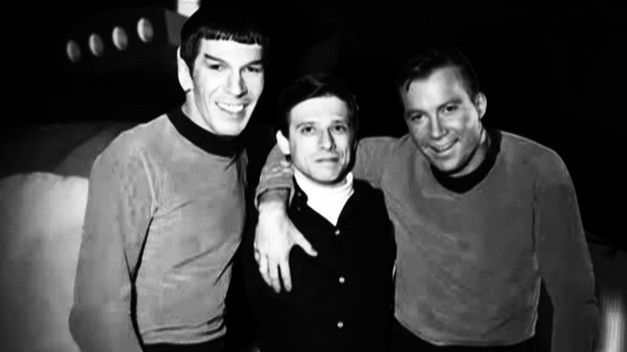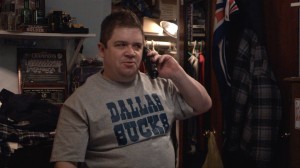I’m not on any social media even though I acknowledge there are a great many wonderful things about it. I just don’t know how healthy it is to live inside that machine. And that’s what it seems like to me–a machine. In fact, it probably most resembles a retro one, a pinball machine. The glass is transparent, there’s a lot of jarring noise and the likely outcomes are TILT and GAME OVER. At the end, you’re a little poorer and unnerved by the cheap titillation and the spent adrenaline. I think it’s particularly questionable whether we should be so linked to our past, that every day could be a high-school reunion. Sure, there’s comfort in it, but maybe comfort is what we want but not what we need. And, of course, being virtual isn’t being actual. Like an actor who goes too deeply into a role, it’s hard to disconnect ourselves from the unreality.
In stepping away for a spell from social media and his neverending Twitter wars, Patton Oswalt shared a quote he loves: “For fear of becoming dinosaurs we are turned into sheep.” It comes from Garret Keizer’s 2010 Harper’s essay, “Why Dogs Go After Mail Carriers.” Here’s the fuller passage from the piece:
“More than the unionization of its carriers or the federal oversight of its operations, the most bemoaned evil of the US mail is its slowness {1}. No surprise there, given our culture’s worship of speed. I would guess that when the average American hears the word socialism the first image to appear in his or her mind is that of a slow-moving queue, like they have down in Cuba, where people have been known to take a whole morning just to buy a chicken and a whole night just to make love. Unfortunately, the costs of our haste do not admit to hasty calculation. As Eva Hoffman notes in her 2009 book Time, ‘New levels of speed … are altering both our inner and outer worlds in ways we have yet to grasp, or fully understand.’
The influence of speed upon what Hoffman aptly calls ‘the very character and materiality of lived time’ [my emphasis] has been a topic of discussion for decades now, though its bourgeois construction typically leans toward issues of personal health and lifestyle aesthetics. Speed alters our brain chemistry; it leaves us too little time to smell the roses – a favorite trope among those who would do better to smell their own exhaust. In essence, the speed of a capitalistic society is about leaving others behind, the losers in the race, the ‘pedestrians’ at the side of the road, the people with obsolete computers and junker cars and slow-yield investments. An obsession with speed is also the fear of being left behind oneself – which drives the compulsion to buy the new car, the faster laptop, the inflated stock. For fear of becoming dinosaurs we are turned into sheep.'”



